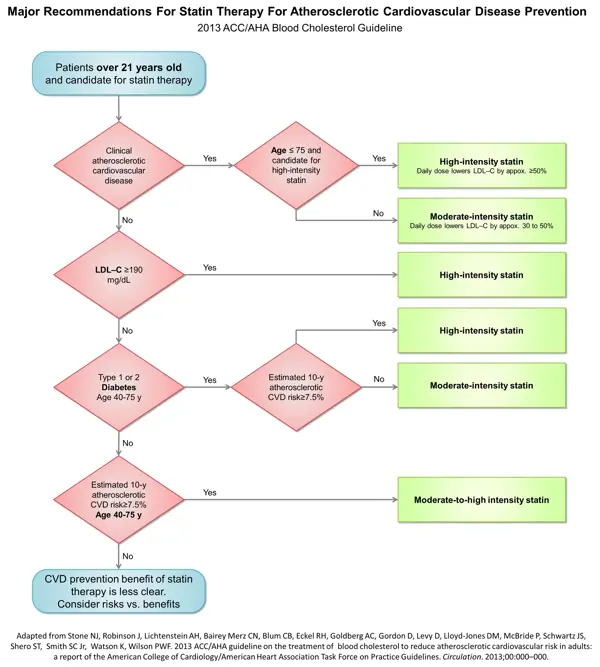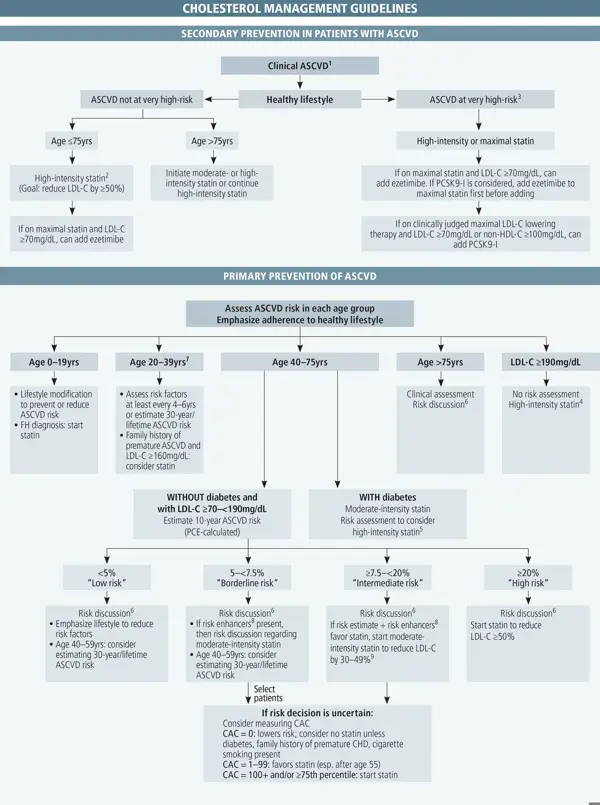Table of Contents
- Introduction
- Dietary Recommendations
- Exercise Guidelines
- Medication Options
- Lifestyle Changes
- Monitoring Your Cholesterol
- Prevention Strategies
Introduction
Stay up-to-date with the latest cholesterol management guidelines for 2024 to protect your heart health.
Dietary Recommendations
Learn about the recommended diet changes to lower cholesterol levels and improve overall health.
According to the latest guidelines on managing cholesterol released in 2024, the following dietary recommendations are important in maintaining healthy cholesterol levels:
- Limit saturated fats in your diet by avoiding red meat, butter, and full-fat dairy products.
- Choose unsaturated fats, such as olive oil, avocados, and nuts, to help lower LDL cholesterol levels.
- Incorporate plenty of fruits and vegetables into your diet for their high fiber content, which can help lower cholesterol levels.
- Eat whole grains, such as oats and brown rice, instead of refined grains to help improve cholesterol levels.
- Limit added sugars and processed foods, as they can contribute to high cholesterol levels.
It is important to consult with a healthcare provider or registered dietitian before making any significant changes to your diet to manage cholesterol levels effectively.

Exercise Guidelines
Discover the exercise routines that can help in managing cholesterol effectively and reducing the risk of heart disease.
In the updated Cholesterol Management Guidelines of 2024, regular exercise is emphasized as a key component in managing cholesterol levels. Here are the exercise guidelines recommended:
- Engage in moderate-intensity aerobic exercise for at least 150 minutes per week
- Incorporate strength training exercises at least two days per week
- Aim for a combination of aerobic and strength training exercises to maximize cholesterol-lowering benefits
- Consult with a healthcare provider before starting any new exercise regimen, especially if you have underlying health conditions
Remember that exercise is just one part of a comprehensive approach to managing cholesterol levels. Be sure to also follow a healthy diet, take any prescribed medications, and attend regular check-ups with your healthcare provider.

Medication Options
Explore the various medications available for managing cholesterol and their potential benefits and side effects.
The cholesterol canadian guidelines for 2024 offer a range of medication options to help individuals lower their cholesterol levels and reduce the risk of heart disease. Some of the common medications recommended include:
- Statins: These are the most commonly prescribed medications for lowering cholesterol. They work by blocking a substance your liver needs to make cholesterol, which in turn helps reduce the levels in your blood.
- Ezetimibe: This medication works by decreasing the amount of cholesterol absorbed by the intestines, helping to lower cholesterol levels.
- PCSK9 Inhibitors: These medications help lower LDL cholesterol levels by targeting a protein that reduces the liver's ability to remove LDL from the blood.
It is important to consult with a healthcare professional to determine the most suitable medication option based on individual health needs and risks.

Lifestyle Changes
Find out about the lifestyle changes that can make a significant impact on your cholesterol levels and overall well-being.
As per the updated cholesterol management guidelines of 2024, it is recommended to make significant lifestyle changes to improve cholesterol levels and overall heart health. Some key lifestyle changes include:
- Following a heart-healthy diet rich in fruits, vegetables, whole grains, and lean proteins.
- Limiting intake of saturated and trans fats, cholesterol, and processed foods.
- Engaging in regular physical activity such as aerobic exercises, strength training, and yoga.
- Avoiding tobacco and limiting alcohol consumption.
- Maintaining a healthy weight and managing stress through mindfulness practices or relaxation techniques.
By adopting these lifestyle changes, individuals can significantly reduce their risk of developing high cholesterol levels and related heart diseases. It is important to consult with a healthcare provider before making any drastic changes to your lifestyle.

Monitoring Your Cholesterol
Understand the importance of regularly monitoring your cholesterol levels and how it can help in preventing heart diseases.
As per the cholesterol management guidelines of 2024, it is important to regularly monitor your cholesterol levels to ensure a healthy heart and reduce the risk of cardiovascular diseases.
Your healthcare provider may recommend regular blood tests to check your cholesterol levels, including total cholesterol, LDL (bad) cholesterol, HDL (good) cholesterol, and triglycerides.
Based on the results of these tests, your healthcare provider may suggest lifestyle changes, medications, or other interventions to help you manage your cholesterol levels effectively.
Remember, maintaining healthy cholesterol levels is essential for your overall well-being and longevity. Stay proactive in monitoring your cholesterol and follow your healthcare provider's recommendations for a healthy heart.

Prevention Strategies
Learn about the proactive steps you can take to prevent high cholesterol and maintain a healthy heart.
The 2024 guidelines for cholesterol management emphasize the importance of prevention strategies to reduce the risk of heart disease and other related health conditions. These strategies include:
- Healthy diet: Consuming a diet low in saturated fats, trans fats, and cholesterol, and high in fruits, vegetables, whole grains, and lean proteins.
- Regular exercise: Engaging in physical activity for at least 30 minutes a day, most days of the week.
- Smoking cessation: Quitting smoking to reduce the risk of cardiovascular disease.
- Weight management: Maintaining a healthy weight through a combination of diet and exercise.
- Medication: Taking prescribed cholesterol-lowering medications as directed by healthcare providers.
By implementing these prevention strategies, individuals can lower their cholesterol levels, reduce their risk of heart disease, and improve their overall health and well-being.

Key Takeaways
- Following a healthy diet and exercise routine is crucial for managing cholesterol levels.
- Medications can be effective in lowering cholesterol, but should be used under medical supervision.
- Regular monitoring of cholesterol levels is essential for preventing heart diseases.
FAQ
Q: Are there any natural remedies for managing cholesterol?
A: Yes, incorporating foods like nuts, oats, and olive oil into your diet can help in managing cholesterol levels naturally.
Q: How often should I have my cholesterol levels checked?
A: It is recommended to have your cholesterol levels checked at least once a year, or more frequently if you have a family history of heart disease.



Recent Comments